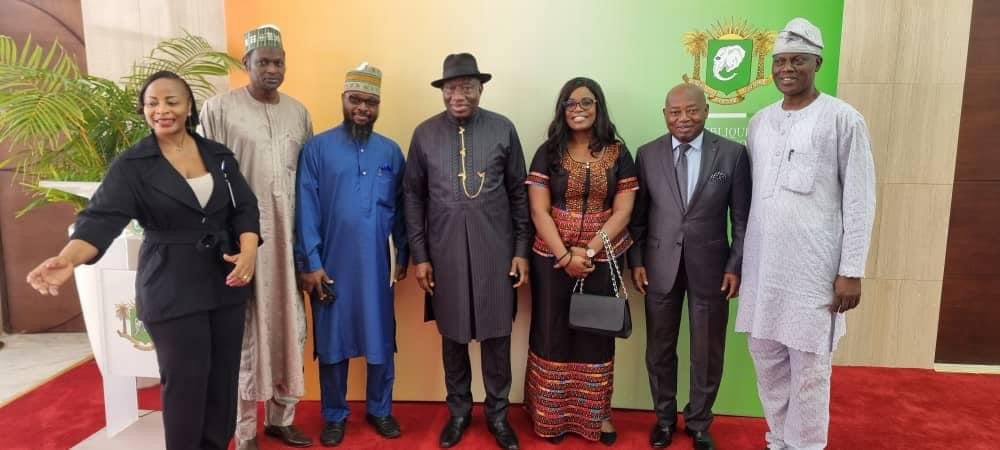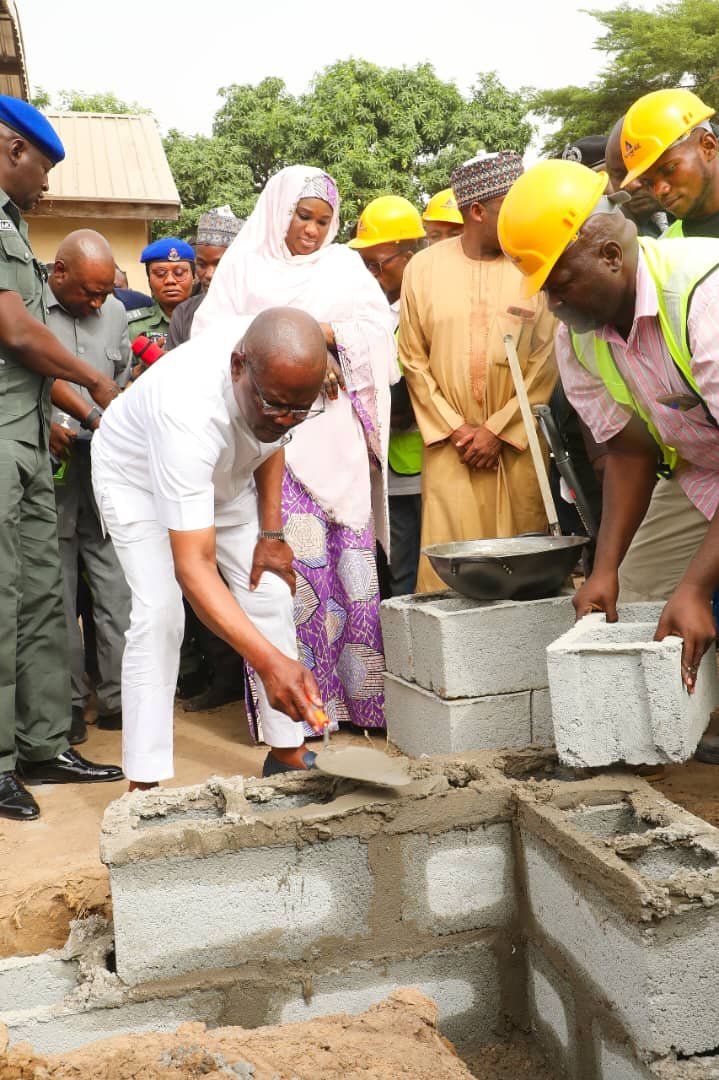322 total views today
By Mark Longyen
The U.S. government has partnered Nigeria, among others, to unveil a five-year Global Food Security Strategic Country Plan to boost the country’s agricultural sector and drive agro-economic growth.
Mr David Greene, the U.S. Embassy’s Chargé d’Affaires, while unveiling the strategy on Thursday in Abuja, said it exemplified the U.S. government’s commitment to resolving the pressing issue of food security in Nigeria.
Greene explained that the new strategy was built on previous achievements and lessons learned, and prioritised inclusive participation, value addition, climate adaptation, private sector engagement, as well as job creation.
According to the U.S. envoy, the U.S. government will through the strategy build sustainable food systems, promote innovation, and advance trade to break the vicious cycle of poverty and hunger in Nigeria.
He explained that the Country Plan had adopted a market system approach to achieve three overarching goals, which included increasing the productivity and competitiveness of horticulture, maize, and rice value chains.
The other two goals, he said, included enhancing the capacities of vulnerable households to respond to shocks, as well as improving access to nutritious and high-quality foods.
He said: “This strategy represents one year of intensive consultation and hours of discussion and I am honored to be here to celebrate the hard work and partnership that went into its development.
“At the U.S.-Africa Leaders Summit in December 2022, President Biden reaffirmed the U.S. government’s commitment to realising African food security, a key priority of the Biden-Harris Administration.
“The Global Food Security Strategy, which we are here to launch today, supports President Biden’s commitment to improve food security in Nigeria.”
Greene said that in 2022, the global pandemic, climate crisis, high energy and fertiliser prices, and protracted conflicts, including Russia’s war against Ukraine, exacerbated food insecurity.
He said that, in response, the U.S. and African leaders, whose countries disproportionately bore the brunt of the impact, strengthened ties to refocus and expand public and private sector investments to address the root causes of the food crisis.
“Nigeria is currently experiencing a severe food crisis due to insecurity, inflation, currency devaluation, the increased cost of inputs, trade restrictions, climate change, and post-harvest loss.
“In January 2024, Nigeria recorded an over thirty-five (35) per cent increase in food prices, making it difficult for the 84 million Nigerians living below the poverty line to buy food.
“If we project out into the future, global food demand will double by 2050, and yet at the same time key staple crops are showing a decrease of up to 30 percent,” the envoy said.
Greene noted that, while climate change was causing extreme weather conditions like drought and floods, it was even more challenging for smallholder farmers to increase yields and incomes.
He said that Nigeria was ranked the sixth least prepared globally to confront climate change, stressing that it must focus on adaptation if food security was to be achieved.
“Climate change is leading to ever-more disastrous shocks, and with so many of the harshest impacts falling on poor farmers, how do we break the cycle of lurching from food crisis to food crisis?
“We are working to answer this question by developing innovations to assist the millions of farmers in Nigeria, including the 70 percent of smallholder farmers who still rely on rain-fed agriculture,” the envoy said.
According to Greene, in order to achieve the aims of the partnership, the U.S. government is providing broad assistance across Nigeria to support agriculture development.
He disclosed that the United States Agency for International Development (USAID), invested almost $200 million in agriculture for the last five years to improve food security and build household resilience to shocks in eleven Nigerian states.
He listed the states to include Adamawa, Benue, Borno, Cross-River, Delta, Ebonyi, Gombe, Kaduna, Kebbi, Niger, and Yobe.
The envoy said that the U.S. government also provided modest grants to 33 private-sector companies to leverage over $150 million in private-sector development, and generated $306 million in domestic sales, and created over 23,000 jobs.
He noted that USAID was one of many U.S. government agencies promoting agricultural development in Nigeria, adding that the U.S. Department of Agriculture had inaugurated a $22 million, five-year investment in Nigeria’s cocoa value chain in seven states.
“In February 2023, the U.S. Department of State launched the Vision for Adapted Crops and Soils in partnership with the African Union and the Food and Agriculture Organization.
“The U.S. is advancing the partnership by directing $150 million globally towards USAID and International Fund for Agricultural Development (IFAD) crop and soil activities.
“The United States also supports the AU’s upcoming Africa Fertilizer and Soil Health Summit in Nairobi in May, which will provide an opportunity to collaborate with African governments and institutions on the development of soil action plans.
“Nigeria is doing fantastic biotech agricultural research and development – they may in fact be the leader in Africa in biotech ag R&D.
“They just became the second country in Africa to approve the commercialization of GE corn (after South Africa) by taking part in an African-wide AATF research effort “TELA Maize”, which was funded by USAID and the Bill and Melinda Gates Foundation,” Greene said.
The U.S. envoy said that Nigeria’s potential to drive agriculture-led economic growth was endless, and the U.S. government and partners were ready to support Nigeria, adding that Nigerians were best placed to solve the issues that affect them.
He, however, said that for ideas to grow and drive economic development, the Nigerian government must create an enabling environment that supports private sector-led growth and entrepreneurship.
“U.S. companies and other U.S. private sector stakeholders are eager to help Nigeria improve agricultural productivity, trade, and food security.
“However, clear and transparent tax and investment rules are needed for meaningful growth.
“Food must be available to buy, and prices must be affordable for all Nigerians.
“The Nigerian government should embrace the adoption of genetically modified crops to boost the productivity and income of smallholder farmers while removing trade restrictions, including food and agricultural import bans. Competition and free trade fosters creativity and efficiency.
“The choices that we make today and the remainder of this decade and how we tackle these challenges, in my view, will determine the direction the entire world takes in the decades to come,” the U.S. envoy stressed(NAN)(www.nannews.ng)
Edited by Vivian Ihechu













